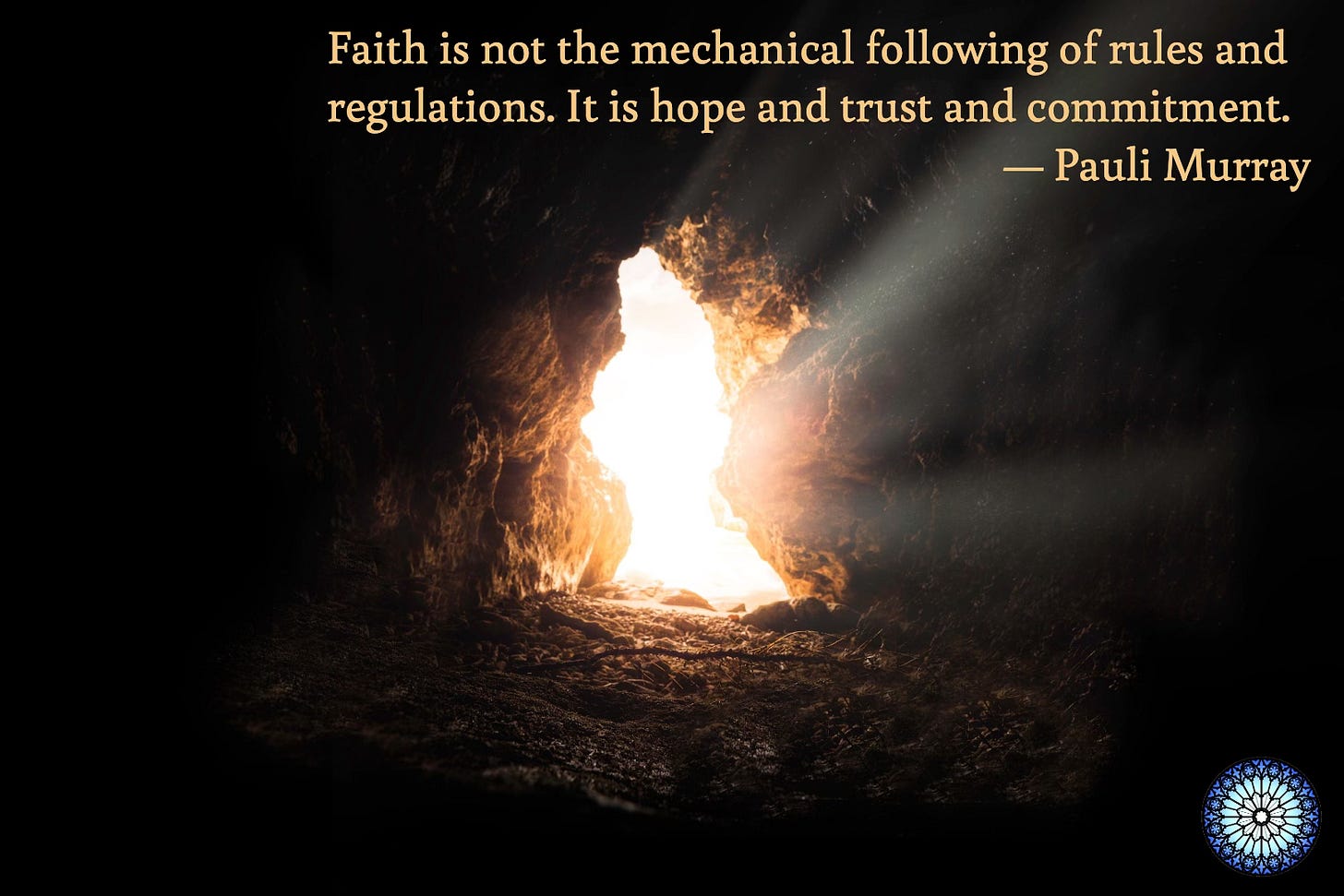Hope, Trust, Commitment
Faith is a relationship, not a transaction
Faith is not the mechanical following of rules and regulations. It is hope and trust and commitment.
— Pauli Murray, To Speak a Defiant Word
I grew up in a Lutheran Church, which means the phrase “justification by faith” loomed large in my childhood religious formation. The message was that we human beings are saved by faith in Jesus, not by any efforts on our part. But I don’t remember ever being given a helpful definition of what “faith” is — or even any definition, helpful or otherwise! There was this vague idea that faith meant “believing in” God and Christ, kind of like a child believes in Santa Claus (only, of course, discovering that Santa was only a myth was not meant to undermine our God-faith!).
Unfortunately, without a robust understanding of what faith was, it was all too easy to equate “faith” in God with obeying the rules (or the commandments). It’s been said, ruefully, that traditional churches had three requirements of its members: to “pray, pay and obey” (pay, of course, referring to a financial pledge). It was too easy to see the faith that justifies us as just a fancy was of describing the unspoken rule that being a good Christian meant complying with all the commandments, whether spoken or unspoken.
How I wish I had been exposed to Pauli Murray’s succinct way of reminding us that faith was not about our behavior, but about our trust — and our hope. Sure, every religion includes some sort of mandate to ethical or compassionate behavior. But Luther, following St. Paul’s Letter to the Romans, insisted that trust and hope in God mattered more than how well (or poorly) we follow the rules. Clearly, Pauli Murray preaching about this in 1979 is a reminder that this is a message we human beings need to hear over and over again.




